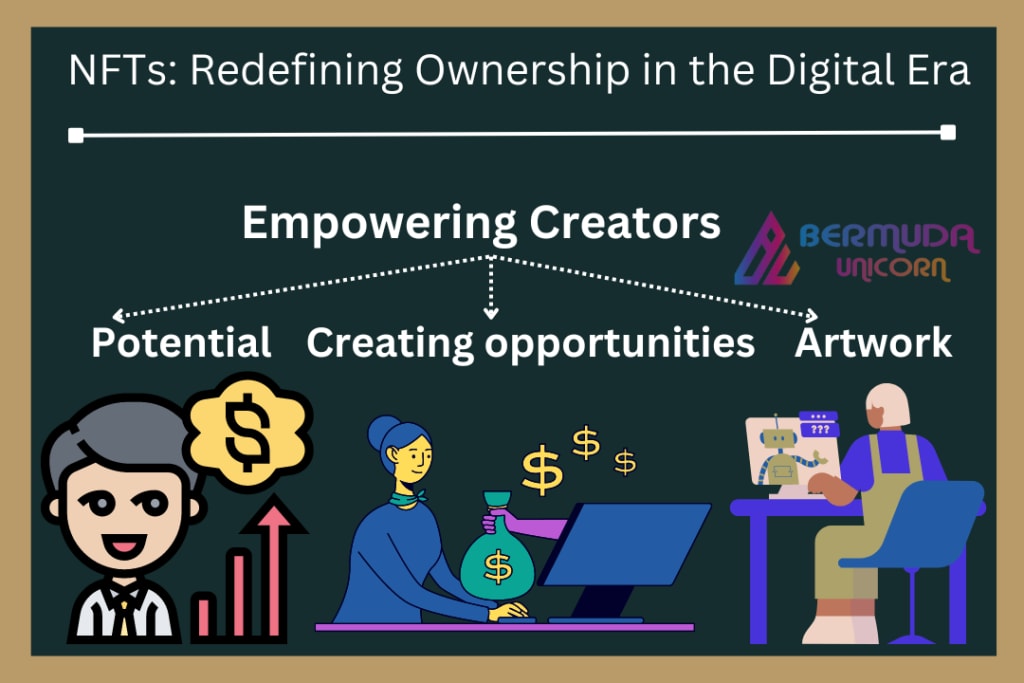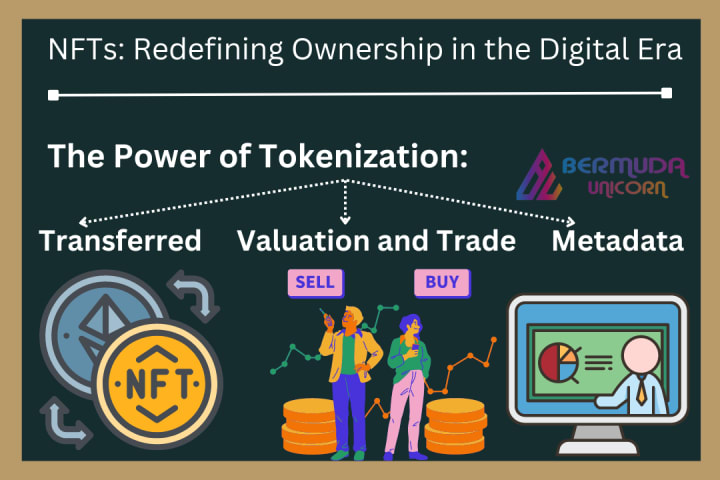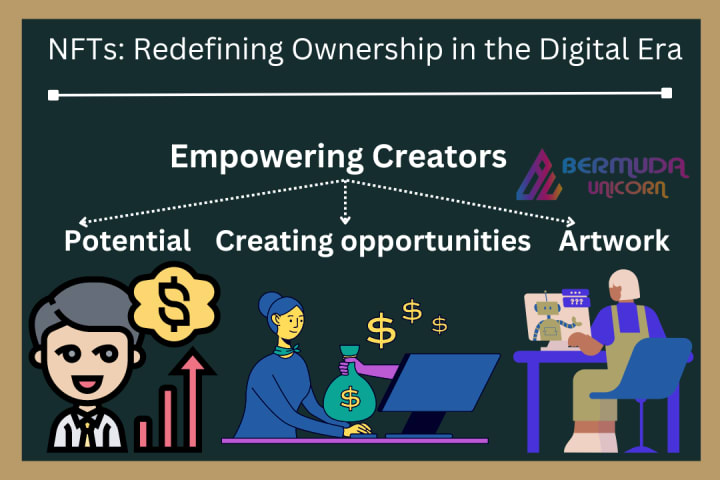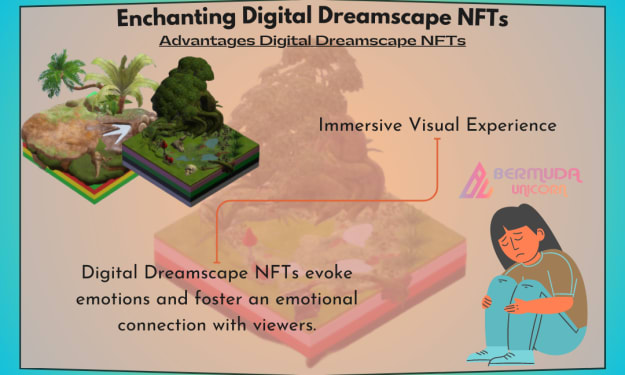NFTs: Redefining Ownership in the Digital Era
NFTs

Introduction:
In today's rapidly evolving digital landscape, Non-Fungible Tokens (NFTs) have emerged as a groundbreaking technology that is redefining the concept of ownership. Leveraging blockchain technology, NFTs provide a unique and secure way to establish verifiable ownership of digital assets. In this blog, we will explore in depth how NFTs are transforming the notion of ownership in the digital era and the implications this has for creators, collectors, and the broader art and digital asset communities. Bermuda Unicorn.
1. The Power of Tokenization:

At the core of NFTs lies the power of tokenization. By tokenizing digital assets on the blockchain, NFTs create a unique identifier that represents ownership. Each NFT is distinct and carries specific metadata, enabling individual items to be bought, sold, and transferred seamlessly. This tokenization process not only ensures the security and immutability of ownership but also introduces new possibilities for the valuation and trade of digital assets.
2. Establishing Authenticity and Provenance:
One of the fundamental advantages of NFTs is their ability to establish authenticity and provenance in the digital realm. With blockchain technology, the ownership history and transaction records of an NFT are permanently recorded and transparently accessible to all. This enables easy verification of ownership, eliminates concerns of counterfeiting, and provides an immutable record of the asset's journey. NFTs revolutionize the way we prove the authenticity and ownership of digital assets, ensuring trust and confidence in the market.
3. Empowering Creators:

NFTs have immense potential in empowering creators by providing them with a new means to monetize their digital creations. By tokenizing their artwork, music, or other digital assets as NFTs, creators retain ownership and can earn royalties from subsequent sales or usage. This shift in ownership dynamics allows artists to directly benefit from the increased value of their work, fostering a more sustainable and financially viable career path. NFTs enable artists to establish direct relationships with collectors and fans, creating opportunities for collaboration and support.
4. Accessibility and Fractional Ownership:
NFTs also democratize ownership by making it more accessible to a broader audience. With fractional ownership, individuals can purchase a percentage of an NFT, enabling them to invest in high-value digital assets that were previously out of reach. Fractional ownership unlocks opportunities for diverse participation, as it allows people with varying budgets to engage with and benefit from the digital asset ecosystem. This broader accessibility expands the market and fosters a more inclusive environment for collectors and investors.
5. Challenges and Considerations:
While NFTs offer exciting possibilities, there are challenges and considerations that need to be addressed. Environmental concerns surrounding the energy consumption of blockchain networks used for NFTs are being actively explored, with efforts being made to adopt more sustainable alternatives. Additionally, copyright infringement and intellectual property rights issues need to be carefully navigated to ensure fair treatment for creators and the protection of their work. Collaborative efforts and evolving industry practices are essential to establish responsible and ethical standards for NFT ownership and usage.
6. The Future of Ownership:
As NFTs continue to gain traction, they have the potential to reshape ownership models across various industries. From art and collectibles to virtual real estate and digital fashion, the concept of ownership is evolving. NFTs enable creators and collectors to establish direct relationships, promote transparency, and unlock new opportunities for value creation. The ongoing exploration and adoption of NFTs will shape the future of ownership in the digital era, providing new avenues for creativity, investment, and participation.
Conclusion:
NFTs have ushered in a paradigm shift in ownership, revolutionizing the way we perceive and interact with digital assets. By leveraging blockchain technology, NFTs enable verifiable ownership, establish authenticity and provenance, empower creators, and create new opportunities for accessibility and investment. However, addressing challenges and considerations surrounding sustainability, intellectual property, and industry standards is crucial to ensure responsible practices and sustainable growth. As the digital era progresses, the concept of ownership will continue to evolve, and NFTs will play a significant role in shaping the future of ownership in the digital landscape.





Comments
There are no comments for this story
Be the first to respond and start the conversation.